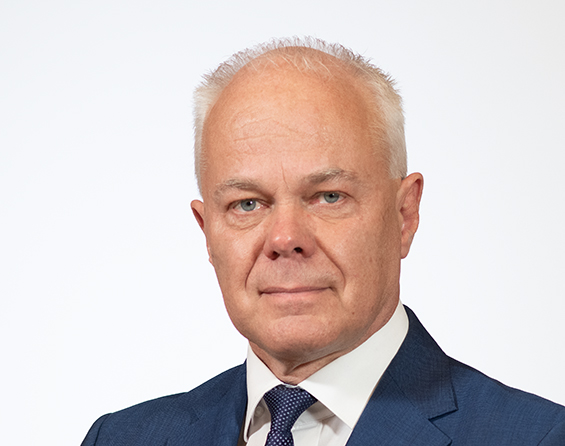
AI Profiileerimine: Toomas Kivimägi
Päevakorrapunkte: 12
380/380 profiling (100.0%)
Sõnavõtte kokku: 21
Analüüsi periood: 2024-03-19 - 2025-09-24
Poliitiline positsioon
Poliitiku positsiooni iseloomustab tugev institutsionaalne fookus, rõhutades parlamendi töökorraldust, traditsioone ja efektiivsust (protseduuripõhine raamistik). Lisaks Riigikogu sisekorra kaitsmisele väljendab ta tugevaid seisukohti riigi rahanduse (vastuseis uutele maksudele) ja õigussüsteemi reformimise osas, kasutades nii tulemus- kui ka reformipõhist raamistikku. Profiil näitab ka selget väärtuspõhist seisukohta eesti keele põhiseadusliku kaitse ja teenuste kättesaadavuse prioriteetsuse küsimuses. Seisukohad on valdavalt tugevad ja suunatud kas kehtivate protseduuride järgimisele või konkreetsete seadusandlike reformide elluviimisele.
Teemade ekspertiis
Poliitiku ekspertiis on tugevalt kontsentreerunud Riigikogu sisekorra, seadusandliku protsessi ja parlamendi tavade tundmisele, demonstreerides autoriteeti menetluslikes küsimustes. Järjepidevalt on ta näidanud süvenemist õigusvaldkonda, käsitledes spetsiifilisi teemasid nagu kriminaalmenetlus, põhiseaduslikkus ja keeleõigused, ning on kursis järelevalveasutuste tööga. Lisaks protseduurilisele ja õiguslikule asjatundlikkusele on ta demonstreerinud makromajanduslikku teadlikkust, kasutades spetsiifilisi termineid rahapoliitika ja riigieelarve küsimustes. Kuigi protseduuriline ja õiguslik süvenemine on kõrge, viitavad mõned perioodid piiratud tehnilisele või andmepõhisele sisuekspertiisile väljaspool parlamendi ja õigussüsteemi toimimist.
Retoorriline stiil
Poliitiku retooriline stiil on valdavalt äärmiselt formaalne, lugupidav ja protseduuriline, kasutades järjepidevalt tiitleid ning hoides ametlikku ja autoriteetset tooni. Kuigi domineerib loogiline ja analüütiline apellatsioon, mis keskendub reeglitele ja tavadele, ilmnevad väärtuspõhised või isegi tungivad emotsionaalsed noodid (nt piinlikkus, sügav häiritus) siis, kui käsitletakse avalikku õiglustunnet või institutsionaalsete traditsioonide eiramist. Kõneleja eelistab otsekohest ja deklaratiivset keelt, kasutades sageli retoorilisi või hüpoteetilisi küsimusi, et esitada väljakutseid, rõhutada protseduurilisi probleeme ja nõuda seadusandlikke lahendusi. Harvad erandid formaalsusest on lühikesed ja kontekstipõhiselt humoorikad.
Tegevusmustrid
Poliitiku tegevusmuster on tugevalt seotud Riigikogu sisekorralduse ja seadusandliku tööga, kus ta osaleb regulaarselt nii protseduurilistes aruteludes (juhtides infotunde ja avades läbirääkimisi) kui ka sisulistes küsimustes (ekspertide ja valitsuse küsitlemine). Tegevuse rütm on intensiivne parlamendi istungite perioodidel, eriti seoses kandideerimisega Riigikogu juhtpositsioonidele, mis viitab keskendumisele parlamendi sisemisele hierarhiale. Kuigi tegevuse fookus on valdavalt siseriiklik, hõlmas 2024. aasta tegevus ka üht olulist rahvusvahelist välisvisiiti.
Opositsiooni hoiak
Poliitiku vastasseis on suunatud laiale sihtrühmale, hõlmates nii valitsuse fiskaalpoliitikat, Riigikogu fraktsioone ja norme eiravaid rühmitusi kui ka opositsiooni enda protseduurilist tegevust. Kriitika on valdavalt protseduuriline ja normatiivne, keskendudes süsteemi ebaõiglastele tagajärgedele, normide rikkumisele ja aja raiskamisele, mitte niivõrd isikutele. Rünnakute intensiivsus on suunatud põhiseaduslike ja süsteemsete põhimõtete kaitsmisele, olgu selleks siis maksude kehtestamise ärahoidmine või keelevaliku nõuete kritiseerimine riigiasutustes.
Koostööstiil
Poliitiku koostööstiil on selgelt institutsionaalne ja formaalne, mida iseloomustab pidev austus Riigikogu juhatuse, valitsuse liikmete ja kõrgete riigiametnike (nt Õiguskantsler, Riigikohtu esimees) vastu. Ta rõhutab poliitiliste tavade ja normide järgimist ning püüab suunata kolleege konstruktiivsele dialoogile, tegutsedes tihti debati protseduurilise vahendajana. Kuigi ta otsib dialoogi kaudu aktiivselt lahendusi (nt seadusandja ja kohtusüsteemi vahel), keskendub koostöö peamiselt institutsionaalsele raamistikule ja sisemisele töörühmale, puuduvad aga viited erakondadeülesele kompromissivalmidusele.
Regionaalne fookus
Poliitiku tegevuse fookus on eranditult riiklikul ja parlamendi tasandil, keskendudes Riigikogu tööle, õigussüsteemile, eelarvele ja maksupoliitikale. Järjepidevalt puudub igasugune tähelepanu konkreetsetele piirkondlikele või kohalikele teemadele, projektidele või kogukondadele. Riikliku fookuse kõrval on märgata ka regulaarset huvi rahvusvaheliste küsimuste vastu, mis puudutavad majanduspoliitikat, välissuhteid ja võrdlevat õigust.
Majandusvaated
Poliitiku majanduslikud seisukohad on järjekindlalt suunatud rangele fiskaaldistsipliinile ja riigieelarve puudujäägi vähendamisele. Ta rõhutab kulusid kärpivaid meetmeid ja riigiaparaadi efektiivsuse tõstmist (sh Riigikogu komisjonide arvu vähendamine ja õigussüsteemi ebaefektiivsuse likvideerimine), vastandudes selgelt uute maksude kehtestamisele. See läbiv joon viitab sügavale murele riigi rahanduse jätkusuutlikkuse pärast ning eelistusele lahendada eelarveprobleeme kulude kokkuhoiu, mitte maksukoormuse tõstmise kaudu.
Sotsiaalsed küsimused
Poliitiku sotsiaalsete teemade profiil on valdavalt õiguskeskne ja protseduuriline, keskendudes kodanike õiguste ja vabaduste kaitsele, nagu sõnavabadus ja isikute maine kaitsmine enneaegse meediasüüdistuse eest. Tema peamine sisuline sotsiaalne prioriteet on eesti keele staatuse ja põhiseadusliku kaitse tagamine teenuste osutamisel, mida käsitletakse riivava õiglustunde küsimusena. Traditsioonilised laiad sotsiaalpoliitilised teemad (nagu haridus, immigratsioon, LGBTQ+ või sotsiaalne võrdsus) puuduvad tema käsitlusest täielikult, eelistades neile andmekaitse ja protseduuriliste piirangute rõhutamist.
Seadusandlik fookus
Poliitiku seadusandlik tegevus on valdavalt protseduuriline ja institutsionaalne, keskendudes Riigikogu sisekorra reformimisele (sh komisjonide arvu vähendamine) ning parlamendi juhtkonda kandideerimisele, rõhutades pidevalt menetluslikku korrektsust. Sisuliste teemade puhul on prioriteediks strateegiline riigirahanduse juhtimine ja süsteemne õigusreform (kriminaalmenetluse ja aegumise reeglite muutmine). Ta tegutseb eelkõige parlamendi töökorralduse eestvedaja ja põhiseaduslikkuse järelevalvaja rollis, saavutades edu ka konkreetsete maksualgatuste peatamisel, mis viitab tema rollile pigem vastustaja kui uute seaduste algatajana.